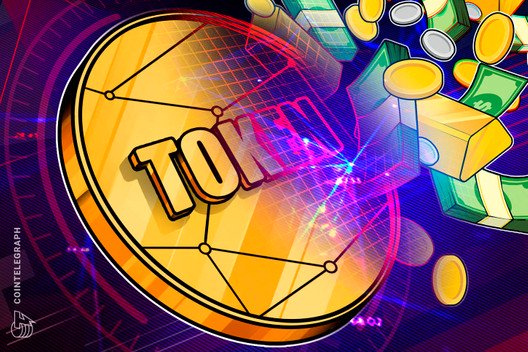Blockstack’s SEC Filing Reveals Heavy Use of Tokens When Paying Services
Blockstack PBC’s annual report with the SEC highlights payments made to other crypto firms for its marketing efforts.
Blockstack PBC filed its annual report with the Securities and Exchange Commission, or SEC, as part of its regulatory obligations resulting from project’s the initial coin offering, or ICO.
The SEC report was published on April 29. It details some of the high profile deals made by Blockstack throughout the year, as well as a general financial statement of the company, whose entire revenue is derived from selling its tokens.
Asian expansion and investment
The company revealed to have made concrete efforts to establish a presence in Asia, where it also held a secondary token sale. This sale was filed under Regulation S, which defines offshore securities sales.
Starting in February 2019, Blockstack paid an undisclosed sum to the Spartan Group, a Hong Kong-based crypto consulting firm. The group was hired for a variety of services, including creating a go-to-market strategy in Asia, organizing awareness events, and managing investor relations.
The payment was divided into a retainer and a “success” fee, likely defined as a percentage of all tokens sold in this initiative. Overall, the filings reveal that over 30 million Stacks tokens were sold for $7.6 million as part of Blockstack’s Regulation S offering.
Another 14.5 million tokens were issued for “various non-US partners and service providers” in October 2019. The project sent some of these tokens to Binance as part of a complex agreement that included an “ultimately returnable” deposit of $500,000 and 2.5 million Stacks (now worth $275,000). It also included yearly payments of 888,888 Stacks (~$97,000) for three years and a $100,000 marketing fee.
As previously reported by Cointelegraph, Binance denied that these are listing fees.
The filing reveals that Blockstack often chooses to pay both its employees, contractors, and partners in Stacks tokens. The company also revealed that it controls over 450 million Stacks tokens, out of a total supply of 630 million. The majority of these tokens are currently unallocated and subject to a vesting schedule that ends in September 2021.
Blockstack also made a $500,000 investment into New Internet Labs, a Hong Kong company developing a standalone browser based on Blockstack’s app framework. The startup was founded by a former Blockstack engineer, Larry Salibra.
Partnerships to boost users
As Cointelegraph previously reported, 40% of the funds raised in Blockstack’s 2017 ICO were locked until the company reached one million registered users. Otherwise those tokens would be returned.
The announcement of the completion of this milestone prompted controversy in the community. The sudden increase in users led many to believe the numbers may have been manipulated.
As Cointelegraph discovered, over 1.6 million users had schematic usernames, according to Blockstack API data. Part of them were explained by a previously announced Blockchain, Inc. airdrop, while the majority remained a mystery.
In March, Blockstack announced the integration of FireChat, an offline messaging service. The mystery users were all using the “fc-” prefix, coinciding with the name of the project’s partner app. In the announcement, Blockstack wrote, “we’ve worked with FireChat developers for several months towards this feature,” and “the decentralized login functionality has already been rolled out to a subset of FireChat users.”
This likely refers to the 1.3 million users who already had entries in the Blockstack database. It remains unclear how much involvement these users had with Blockstack prior to the announcement in March, however.




